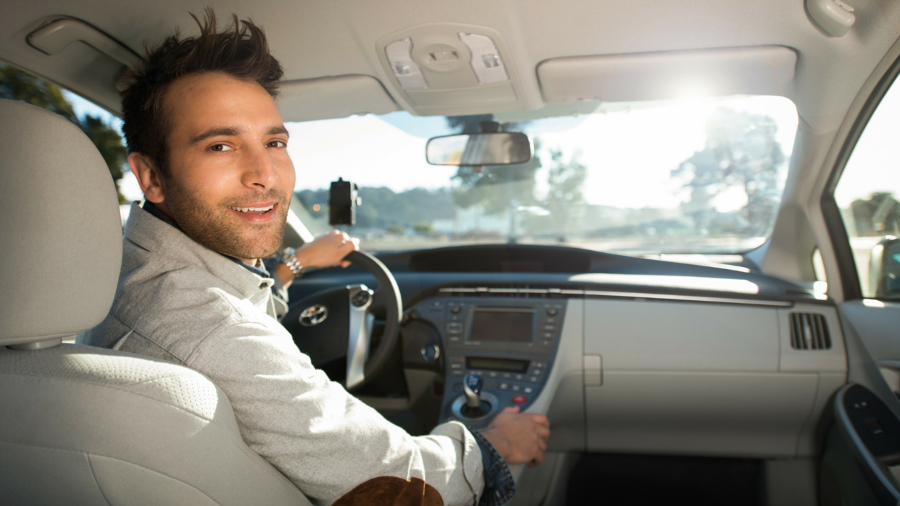Is politics being privatised by tech giants like Uber?
Or is the new 'sharing economy' itself DOA?

Being 'digitally disruptive' has become a buzzword in recent years. Radical new business models from the likes of Uber and Airbnb have shaken-up entire businesses on a global scale. This is the 'sharing economy', the 'gig economy' or the 'Uber economy', and its membership is growing.
The big players, at least by status, are Uber, Airbnb and Etsy, but others include JustPark, Bla Bla Car, Handy, Taskrabbit and Neighborrow. What these services all have in common is that they enable peer-to-peer sharing of goods and services.
That all sounds great in principle, but employees of traditionally-run industries are fighting back against these new upstart arbiters of their terms and conditions, and regulators and politicians are joining in too. Uber executives are on trial in France on the charge that UberPop is an illegal taxi service, while the app's insistence that its drivers remain freelancers is being successfully fought across the globe, with several strikes and decisive court rulings against Uber.
Meanwhile, Airbnb-advertised pop-up hotels in disused office blocks in Tokyo have been closed down by authorities concerned about safety, while other towns are banning short-term home-sharing altogether.
The term 'digitally disruptive' has become an overused cliché spat out by the PR machines to market almost every new app going, but does it now mean something negative? To digitally disrupt increasingly means a startup that has contempt for local laws and public policy. Is that good or bad? Are tech companies attempting a coup on policymaking? Or is the sharing economy DOA?

What is the sharing economy?
"It's a new economy where workers are freelancing their services to start-ups or small businesses," says Rebecca Bridges, Employment & Immigration Solicitor at law firm Taylor Rose. "Freelancers are effectively sharing their human or physical assets, whether that is a taxi, accommodation or postal service, through marketplace-style businesses to promote their services."
Trouble is, the sharing economy is operating outside of traditional workplace constraints. "It's redefining traditional work and economic structures," says Bridges.
Are you a pro? Subscribe to our newsletter
Sign up to the TechRadar Pro newsletter to get all the top news, opinion, features and guidance your business needs to succeed!
Proponents of this 'new world order' are largely those who run it – tech companies and the venture capitalists who back them – but the convenience of these apps has made them widely popular in some urban areas. "The Uber economy has enabled tech- and app-based companies to become labour brokers between consumers and the services they require," says Bridges, who thinks the phenomena is most prevalent in San Francisco, New York and London.
The sharing economy is also about a new perspective. "A new generation of consumers, thanks to a history of social sharing, is quite comfortable to benefit from staying in another person's home, for example, and sees what traditionally people would view as an invasion of privacy as an advantage," says Mike Laming, Lead Technologist at digital innovation company Adaptive Lab. "They are also trusting enough to ride-share with Uber rather than being sceptical and cautious – it's as much about mind-set as the technology that is enabling the physical organisation."

How is it supposed to work?
"The 'Uber economy', the 'gig economy' and the 'sharing economy' are all really talking about the same thing – the co-ordination of underutilised resources across a geographic area through technology," says Laming.
People can share their services and freelance for whoever they want. Oh, the freedom, the flexibility! The extra income! And it works perfectly! Err, hang on…
"To a large extent it doesn't work," says Laming. "Aside from a handful of high-cost, high-value services, like Airbnb, Uber or Handy, it's dead in the water." The reason for this, of course, is that these companies are under intense regulatory pressure. "It threatens to compromise their business models, making them potentially unviable in the long term," adds Laming, who also doubts that the sharing economy will spread.
He further observes: "If the cost of sharing is significantly lower than the purchasing option – either with time or money – then it's likely to work, but most items aren't like this … either it costs too much to rent, or it takes too much time to coordinate."
Although such apps are often fought against by those in traditional industries, they can be complementary, and merely extend choice. Airbnb says that 76% of its properties are outside the main hotel districts, while Boston University calculated that for every 10% increase in the size of the Airbnb market, revenues for hotels dropped by 0.37%.
Jamie is a freelance tech, travel and space journalist based in the UK. He’s been writing regularly for Techradar since it was launched in 2008 and also writes regularly for Forbes, The Telegraph, the South China Morning Post, Sky & Telescope and the Sky At Night magazine as well as other Future titles T3, Digital Camera World, All About Space and Space.com. He also edits two of his own websites, TravGear.com and WhenIsTheNextEclipse.com that reflect his obsession with travel gear and solar eclipse travel. He is the author of A Stargazing Program For Beginners (Springer, 2015),
